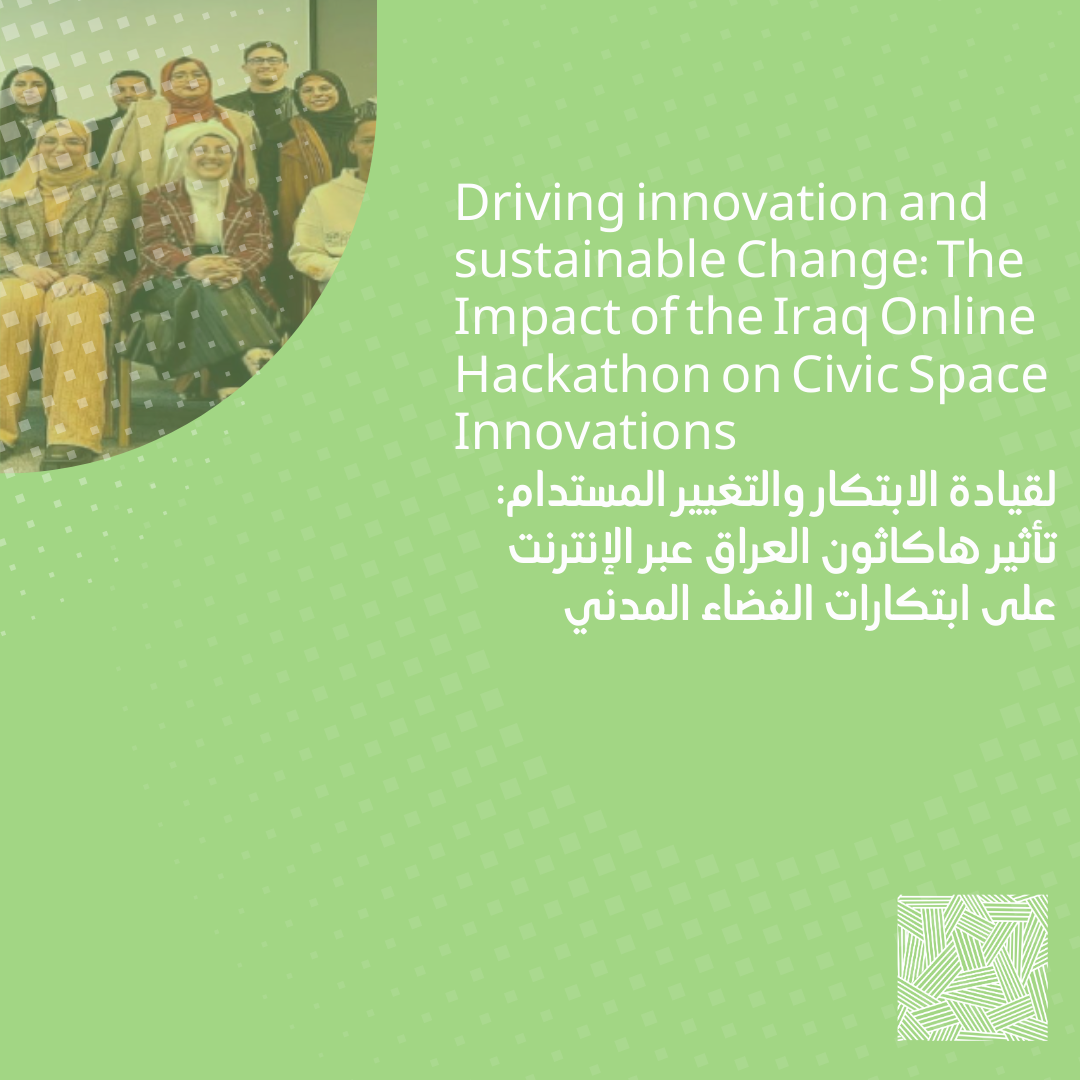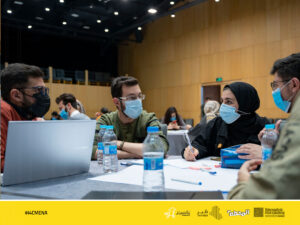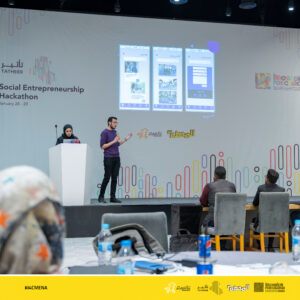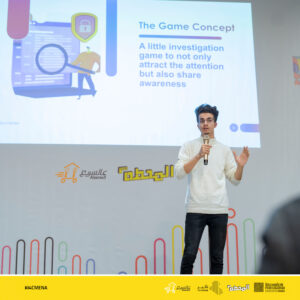
When challenges arise, innovation and collaboration become our greatest assets. In December 2022, In partnership with I4C MEN partner in Iraq The Station an inspiring event was organized, the “Iraq Online Hackathon on Covid-19 Civic Space Innovations.” Over three days, 30 technologists, innovators, and activists from Mosul converged to solve civic space challenges brought on by the pandemic. The hackathon aimed to increase community resilience in times of crisis and empower local civil society. The outcome was not just groundbreaking technological solutions but also a demonstration to the power of collective action and creativity.
Phase 1: Understanding the Landscape
In December 2022, an online survey was conducted to identify the most critical civic space challenges in Iraq. The survey’s findings highlighted the importance of social inclusion and environmental problems. With this knowledge, the hackathon was planned with a specific concentration on topics related to Covid-19, with a focus on the convergence of technology and social and civic space issues in Iraq.
Phase 2: Fostering Collaboration and Skill Development
During the three-day hackathon, 30 Iraqi technologists, civil society workers, and activists came together virtually to tackle the identified challenges. The participants received expert mentoring in civil society and technology, equipping them with the skills to develop innovative solutions. This creative setting served as an incubator for partnerships and inventions, sparking the flame of community empowerment and resiliency.
Phase 3: Two Transformative Solutions
Ten teams presented their projects to a panel of local experts at the closing ceremony. Among them, two projects stood out for their impact, viability, and creativity. The first sub-grant was awarded to Haneen Shamel Mohammed, whose project focused on empowering local CSOs and the Nineveh Health Directorate to collaborate and support vulnerable communities during crises.
Haneen Shamel Mohammed’s Project:
Haneen’s project aimed to enable neighbourhood CSOs and the Nineveh Health Directorate to better organize, collaborate, and mutually support each other in overcoming challenges faced by vulnerable communities in accessing essential services during times of crisis. The project began with a comprehensive needs assessment, identifying the critical areas of intervention.
The needs assessment was followed by the development and execution of a communication strategy, enabling efficient coordination between CSOs and the Nineveh Health Directorate. Community participation was prioritized through various engagements such as community meetings, focus group discussions, surveys, and participatory approaches.

The project produced a comprehensive needs assessment report, highlighting key findings, challenges, and areas for improvement in aid delivery. Community meetings and focus group discussion reports were conducted, fostering engagement and participation of local communities in addressing their specific needs during times of crisis. A communication strategy document was developed, providing a framework for collaboration between CSOs and the Nineveh Health Directorate. Stakeholder engagement reports and social media posts were generated, reaching stakeholders from various organizations and informing their decision-making processes.
The community engagements facilitated by the project allowed for increased collaboration and coordination between CSOs and the Nineveh Health Directorate. This led to a better overall response during times of disaster. The success of this project has been widely recognized, and it has received continued support. The Al-Mesalla organization has provided funding for another cycle of the project, which is a testament to the impact it has had on empowering local CSOs in Mosul. With continued collaboration, coordination, and participation of communities, the beneficiaries of this project will be better prepared to overcome challenges faced during times of crisis and access essential services.

Sarah Abdulrahman Hussein’s Project:
The second sub-grant went to Sarah Abdulrahman Hussein, whose project involved creating an online platform that would link volunteers with regional CSOs for disaster relief and crisis preparedness. The platform facilitated volunteerism, boosting the abilities and commitment of those willing to give back to their communities. This digital solution promoted collaboration and helped to sustain CSO operations in Mosul, including more than 100 volunteer registrants and more than 33 local CSOs in less than a month. Media attention was given to the project, and additional partnerships were planned to increase its impact.
During times of disaster, the creative initiative has successfully increased community engagement and promoted resilience. The project has given people the power to have a real impact on their community while earning invaluable experience and broadening their skill sets by facilitating the interaction between enthusiastic volunteers and nearby CSOs. The website included training materials for CSOs as well as resources for volunteers to develop their skills, empowering volunteers and boosting their participation to CSO operations.
The partnership agreement between the initiative and the Volunteer with Us organization ensured on-going assistance and potential future partnerships to increase the project’s impact.
A Vision of Empowered Communities
The “Iraq Online Hackathon on Covid-19 Civic Space Innovations” left an indelible mark on civil society in Iraq. The dissemination and adoption of social innovation methodologies empowered participants with the tools to tackle civic space challenges effectively. The implementation of the two transformative solutions fostered resilience, strengthened community engagement, and improved aid delivery during crises. The projects served as stepping stones toward sustainable improvements in civic space coordination and resourcing, leaving a lasting impact on the lives of affected communities.
